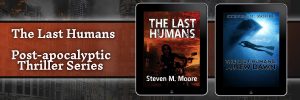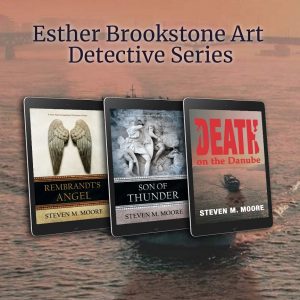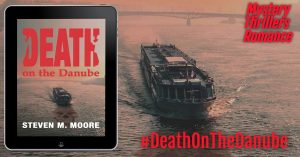Observations…
Both positive and negative events in our modern everyday lives can be used to make our stories more relevant. A hassled and hurried commuter handing a McDonald’s breakfast meal (sandwich and coffee) to a homeless person; an unthinking neighbor letting their mongrel pee on garbage bags without thinking of the essential workers, the garbage collectors, who have to collect those bags; and so forth. These observations can make our prose come alive.
Of course, authors have to observe these events and record them in some way—either using an excellent memory or a napkin or scrap of paper. In short, authors must observe humanity and remember those observations to be able to write about it.

As I pointed out, an author doesn’t have to observe earthshaking events. Little things here and there can add spice to prose. Once, in a day-trip for my old day-job, I saw a thick winter coat get stuck in one of those sliding doors at the airport. There were several openings and closings because the door’s electronic eye detected something there and bounced open again. I imagined that heavy coat as a body. That observation turned into a scene in The Last Humans.
Seemingly mundane observations in your prose can carry readers right into your settings, whether they’re some place on Earth or on a faraway planet. Of course, observing much more drastic events can too. An author can include details that a reader might not know or could not imagine. That works for dialogue as well as narrative. The author needs to create a balanced mix of both and certainly doesn’t want to pad either with uninteresting verbosity, but snippets of details add spice and reality to make a drab meal in fiction into a gourmet treat.
More might be obtained by reacting to an observation. You might be tempted to do something similar for a homeless person and then striking up a conversation to understand their plight. Or you might give the owner of that peeing dog a piece of your mind to see how he reacts, standing up for those essential workers in the process. (I try to salute or wave to them.)
Unless we’re in a rock concert (rare now) or protest march (a legitimate one hopefully, without violence or vandalism) or some other massive event, we usually don’t remember that many people outside our day-jobs and neighborhoods, but we shouldn’t pass up the chance to observe human nature. It’s wonderfully diverse and complex, and fiction that illustrates that is more interesting than fiction that doesn’t. Characterization benefits from observations. Without it, we are led to create two-dimensional characters, cardboard cutouts of humanity.

Plot ideas can also originate in observations. My whole novel Death on the Danube owes its existence to observations. It’s not a memoir of a journey, but I couldn’t have written it without making observations on that riverboat. Rembrandt’s Angel, the first novel in that same series, builds on observations made on trips to South America and Europe. Much of The Last Humans and its sequel, The Last Humans: A New Dawn, is filled with observations I made about my native California years ago—settings, people, and an economy so dependent on agriculture and the water necessary to sustain it.
Is it possible that what gurus call “writing you know” is a misdirect? Maybe they’re really talking about how necessary observations are. Clearly I can’t know what living on a planet in the 82 Eridani system is like (see Sing a Zamba Galactica in the Chaos Chronicles Trilogy Collection), but I can create pioneer-spirited characters from my observations of real human beings—my own parents, for example, were pioneers during the Depression in the sense that they packed all their belongings in a Model T and traveled from Kansas to California. By observing them, I could extrapolate to those bold star-faring pioneers!
Yes, observations are necessary for good storytelling. Go out and make some…and then use them!
***

Comments are always welcome.
Death on the Danube. Ex-Scotland Yard inspector and ex-MI6 agent Esther Brookstone begins her honeymoon voyage down history’s famous river with Interpol agent Bastiann van Coevorden when a murder occurs. Because the river is international waters, he takes over the murder investigation, with Esther helping him out. As they float along with the murder scene, they become embroiled in international intrigue. Available on Amazon in ebook and print versions and in ebook versions on Smashwords and all its affiliated retailers (iBooks, B&N, Kobo, etc.) and lending services (Scribd, Gardners, etc.). #3 in the “Esther Brookstone Art Detective” Series.
Around the world and to the stars! In libris libertas!
